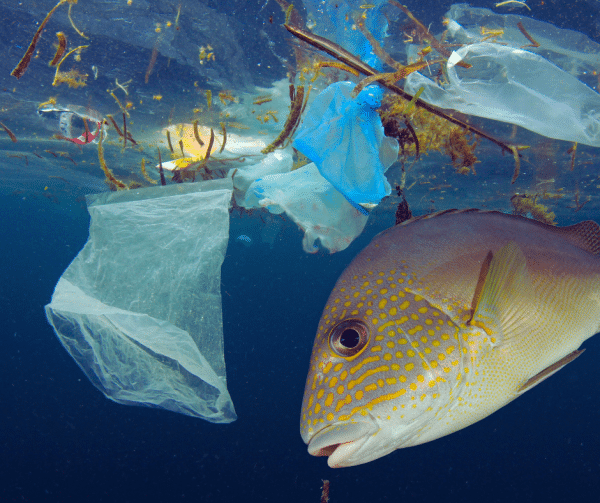Embracing Zero-Waste Living: A Journey Towards a Healthier Planet

Welcome to a world where every choice, no matter how small, can pave the way to a healthier planet. In today’s fast-paced, consumer-driven society, the concept of zero-waste living might seem like a lofty ideal. But what if I told you that transitioning to a zero-waste lifestyle is not only achievable but also incredibly rewarding?
Zero-waste living is more than just a trend; it's a mindful approach to life that emphasizes the reduction of waste and the reutilization of resources. It's about breaking free from the cycle of consume-and-discard and stepping into a world where every item has a purpose and a lifespan beyond the landfill.
In this article, we'll embark on an enlightening journey into the heart of zero-waste living. We'll explore the environmental challenges posed by our current waste management practices and discover how adopting a zero-waste lifestyle can be a powerful solution. From small steps in your daily routine to significant changes in how you shop and consume, we'll guide you through practical ways to reduce your waste footprint.
So, whether you’re a seasoned eco-warrior or just starting to explore sustainable living, get ready to be inspired. Embracing zero-waste living is not just about transforming your habits; it's about contributing to a larger movement that seeks to harmonize our lives with the natural world.
The Growing Waste Crisis and Its Impact on the Environment
As we peel back the layers of our daily lives, we are confronted with an uncomfortable truth: our modern lifestyle is generating waste at an alarming rate. From plastic packaging to food waste, from electronic junk to fast fashion, the by-products of our convenience-driven world are piling up in landfills and oceans. The statistics are staggering – millions of tons of waste generated yearly, with only a fraction effectively recycled or composted.
This mounting waste crisis poses serious environmental challenges. Landfills are not just eyesores; they are breeding grounds for toxins, leaching pollutants into our soil and waterways. The production and disposal of waste contribute significantly to greenhouse gas emissions, accelerating climate change. Our oceans, a vital life source, are turning into plastic soup, endangering marine ecosystems and the health of the planet.
But it's not just about the tangible waste we see. It's also about the wastefulness embedded in our lifestyles – the energy, resources, and labor that go into producing goods that are quickly discarded. This linear approach of 'take-make-waste' is unsustainable and is putting undue strain on our planet's finite resources.
In the face of these challenges, zero-waste living emerges not just as an option but as a necessity. It's a call to rethink, reduce, and reimagine our relationship with material goods.
Zero-Waste Living as a Sustainable Path Forward
The solution to our waste crisis lies in a paradigm shift - from a linear to a circular economy, where waste is not an end product but a resource for something new. This is the essence of zero-waste living. It's a philosophy that challenges us to change our consumption patterns and make sustainable choices that benefit the environment.
Zero-waste living focuses on reducing what we consume and reusing what we have, rather than discarding and moving on to the next new thing. It's about embracing the principles of 'Refuse, Reduce, Reuse, Recycle, and Rot' – in that order. The goal is to minimize waste to the point where we send little to no trash to landfills.
- Refuse: It starts with refusing what we do not need – saying no to single-use plastics, unnecessary packaging, and products that harm the environment.
- Reduce: Reducing what we do need by choosing products that are durable, sustainable, and have a lower environmental impact.
- Reuse: Reusing involves finding ways to repurpose items rather than discarding them after single use. It's about being creative and resourceful.
- Recycle: Recycling what we cannot refuse, reduce, or reuse. It's important to understand local recycling rules and recycle effectively.
- Rot: Finally, composting organic waste – a way to turn food scraps and yard waste into nutrient-rich compost that can nourish the earth.
Adopting a zero-waste lifestyle may seem daunting, but it doesn't have to be an all-or-nothing approach. Small, consistent changes can have a significant impact.

The Far-Reaching Rewards of Zero-Waste Living
Diving into a zero-waste lifestyle isn't just a noble environmental cause; it comes with a myriad of benefits that can enhance your life and the planet. Here’s a glimpse into the transformative power of adopting this eco-conscious way of living:
- Environmental Preservation: At its core, zero-waste living significantly reduces pollution and conserves natural resources. By minimizing waste, you're directly contributing to a cleaner and healthier planet, preserving ecosystems, and protecting wildlife.
- Reduced Carbon Footprint: Less waste means less energy spent on production, transportation, and disposal of goods. This reduction in energy consumption directly translates into a lower carbon footprint, combating climate change.
- Cost Savings: Zero-waste living often leads to financial savings. By buying less, choosing reusable items, and reducing energy consumption, you can significantly cut household expenses.
- Healthier Lifestyle: Choosing sustainable, organic products over those laden with chemicals and opting for fresh, unpackaged food often leads to healthier dietary choices. This lifestyle can also encourage physical activity, whether it's gardening or DIY projects.
- Community Building: Engaging in zero-waste practices often involves local communities – whether it's supporting local farmers, participating in community composting, or joining local environmental initiatives. This fosters a sense of community and shared purpose.
- Innovation and Creativity: Zero-waste living encourages innovative thinking and creativity. Finding new uses for old items or DIY solutions for everyday needs can be incredibly fulfilling and fun.
- Educational Impact: Practicing and advocating for a zero-waste lifestyle educates those around you, spreading awareness and inspiring change in your community.
How-To Guide: Practical Steps to Embrace Zero-Waste Living
Embarking on a zero-waste journey may seem overwhelming at first, but it's all about taking small steps and making mindful decisions. Here’s a practical guide to help you ease into a zero-waste lifestyle:
- Assess Your Waste: Start by looking at your current waste. What do you throw away most? Identifying your main sources of waste is the first step towards reducing them.
- Begin with the Basics: Swap out disposable items for reusable alternatives. Invest in a reusable water bottle, coffee mug, shopping bags, and food containers. These are easy switches with a big impact.
- Mindful Shopping: Shop with intention. Buy in bulk where possible to reduce packaging waste. Choose products with minimal or recyclable packaging. Support local and sustainable businesses.
- Embrace Second-Hand: Before buying new, see if you can find it second-hand. Thrift stores, online marketplaces, and local swap meets are great resources for pre-loved items.
- DIY Solutions: Make your own cleaning and beauty products. Often, a few simple ingredients can replace a myriad of packaged products. It’s cost-effective and cuts down on chemical waste.
- Compost Kitchen Scraps: Start composting organic waste like food scraps and yard waste. Composting enriches the soil, reduces the need for chemical fertilizers, and cuts down on methane emissions from landfills.
- Educate and Advocate: Learn as much as you can about waste reduction and share your knowledge with others. Advocacy is a powerful tool in expanding the zero-waste movement.
- Be Patient and Persistent: Remember, it's a journey. Every small step counts, and persistence is key. Don't be too hard on yourself for not being perfect – it's about progress, not perfection.
By adopting these practices, you’re not only contributing to a healthier planet but also paving the way for a more sustainable and fulfilling life. Next, we'll explore the long-term impact of zero-waste living.

Long-Term Impact: The Enduring Effects of Zero-Waste Living
The shift to a zero-waste lifestyle goes beyond just reducing the amount of trash you produce. It has profound and lasting effects on various aspects of life and the environment. Let’s explore the long-term impact of embracing zero-waste living:
- Sustainable Ecosystems: By reducing waste, we lessen the burden on landfills and minimize pollution in our waterways and oceans. This leads to healthier ecosystems and a more balanced natural world.
- Climate Change Mitigation: Zero-waste practices contribute significantly to reducing greenhouse gas emissions, particularly methane from landfills and carbon dioxide from the production and transportation of goods. Over time, this can have a significant impact on slowing down climate change.
- Resource Conservation: Adopting zero-waste habits helps conserve precious resources like water, minerals, and forests. This sustainable approach ensures these resources are available for future generations.
- Economic Benefits: Zero-waste initiatives can stimulate local economies through recycling programs, composting facilities, and sustainable product markets. It also opens up new job opportunities in green industries.
- Healthier Communities: Reducing waste also means reducing exposure to harmful chemicals and pollutants. This leads to healthier communities with less risk of diseases linked to environmental factors.
- Cultural Shift: As more people embrace zero-waste living, it encourages a cultural shift towards sustainability. This collective action has the power to influence policy changes and corporate responsibility, leading to broader environmental protections.
- Personal Wellbeing: On a personal level, living a zero-waste life can lead to a sense of accomplishment, increased mindfulness, and a deeper connection with the environment.
In conclusion, the transition to zero-waste living is more than just a personal choice—it's a powerful statement about the kind of world we want to live in and leave behind. It's about taking responsibility for our actions and their impacts, and actively shaping a sustainable, healthier future.
So, are you ready to be part of this transformative movement? Embrace zero-waste living and be the change you wish to see in the world. The journey starts with you.
